#robert merton
Text
Applying criminological theories to Phantom of the Opera #1
I study criminology, and I have an exam in a week about criminological theories (=theories that attempt to explain deviant behavior/crime.) Each theory has a different perspective. So, I figured, why not apply a theory to Phantom. It's been on my mind.
For example, there's Classical Strain Theory (Merton, 1938). It was developed as a criticism of the 'American Dream.' Merton argued that not everyone can achieve the ideals of the American Dream (ex: a good house, good job, nice salary). I mean, if you're born into a poor family, of course it's much harder to get to a top university and become a lawyer. So, he argued, that the people who don't have the means to achieve society's goals, experience "strain". An individual responds to strain in different ways. They respond differently in different situations.
🎭 "Conformity"
An individual accepts the goal (example: American Dream) and try to achieve it with socially accepted means anyway. So, they try to 'work hard' and follow 'legitimate routes.'
🔪 "Innovation"
An individual accepts the goals, but they try to use different - absolutely not socially accepted - means. Innovation! You could get rich by working hard, but you could also steal things or extort people. And this is exactly what Erik does. Let's apply this element of strain theory to him. One of his society's goals is to, as a man, have a steady job and make money. Erik isn't able to achieve this goal due to his face. He's stigmatised and ridiculed for it. He doesn't have a face that's allowed in a workspace. Not to mention that his upbringing caused him to be socially unskilled, and he generally has some odd traits that make him unable to keep a job. That causes a lot of strain. The dude can't achieve his goals. Thus, to achieve society's goal anyway, he starts to manipulate and extort the managers of the opera house. In that way, he's achieved the goal of making money, just differently (and through criminal behavior). There are probably more examples of Erik's innovations, but I want to explain the other responses to strain too.
🥀 "Ritualism"
Ritualism is another response. This is when you accept society's goals, but you don't have the means to achieve them, and you basically give up on trying. An example is an exhausted person working a thankless job, never trying to move up the hierachy within their company. They have kinda accepted their fate, and accepted that they don't have the means to grow into a better position. This can also be applied to Erik, especially to the very moment he starts living inside the opera house. One could say his goals are to get a (1) nice-looking house and (2) become a 'normal,' functioning member of society. Clearly, Erik's tried to achieve these goals in his past; he's travelled around the world, and one could say he attempted to find a steady homebase everywhere he went. He's worked different jobs (circus-artist, architect, assassin), trying to become a functioning member of society the way society wants it. But again, there's an obstacle each time he tries to be 'normal': his face. Everyone rejects and abuses him. So, he gives up on becoming a functioning member of society, also deciding to accept he won't have a nice house, nor a nice job. He hides himself in the opera house and 'functions' from the background, from the shadows. His reality is an unfortunate reality for a lot of neurodivergent and disabled folks too.
🕳️ "Retreatism"
This is when someone also gives up, but they retreat from society altogether in a literal sense. Merton mentions severe drug-addicts and homeless folks as an example of this. These folks don't have the means to achieve society's goals, so they give up on them and retreat from society. They're technically 'there', but not a part of it; they don't 'function' at all anymore, according to Merton. And Erik's a fine example of this during the last scene of Phantom. He lets Christine go, giving up on trying to achieve society's goals of getting a nice family, a house, a wife... But it's no use. It's implied he withers away from sadness and dies. He gives up and retreats - unfortunately resulting in death.
✊ "Rebellion"
This is when you can't achieve society's goals, so you reject them and try to reform society. Merton mentions terrorists as an example of this. However, I could argue that activists or protestors are also an example of it - without correlating them to the extreme example of terrorists. Erik rebels a lot in the show, but I want to focus on the moment he drops the chandelier onto an audience, killing them. One of society's goals is to make money, like I mentioned before. Erik does this, by innovation; he extorts the managers for 20 000s francs each month. They pay him, up until they start to reject his extorting. Christine also rejects (and 'betrays') him, ruining their teacher-student dynamic. He can't be her teacher any longer and he probably won't get to marry her either. He can't achieve the aforementioned goals of being a functioning member of society, plus marrying someone, which is another goal. So, acting out, he drops the chandelier on a bunch people, killing them horribly. This shows he rejects society's goals and the means to achieve them.
Criticism
Of course Merton's theory is an old one, and he only applied it to the American Dream. It's also hard to test this theory, because how do you measure strain? It also doesn't explain specifically what makes some individuals resort to crime, and what makes others conform. Therefore it also doesn't account for the emotional state of an individual, and how much "strain" they can handle. I mean, Erik's clearly damaged emotionally, causing him to have moments where he acts completely irrationally. This is evident when he chokes Christine for a moment in the musical, but stops when he 'comes to his senses.' Is Erik's criminal behavior a result of strain, or a result of other factors, like mental illness, or even brain damage due to the abuse he endured?
But all in all, it's an interesting theory and it's fun to apply it to characters. And now, I have to go back to studying again. See ya (:.
#phantom of the opera#poto#my thoughts#erik the phantom#phantom#robert merton#strain theory#strain#criminology#crime#fictional crime
97 notes
·
View notes
Text



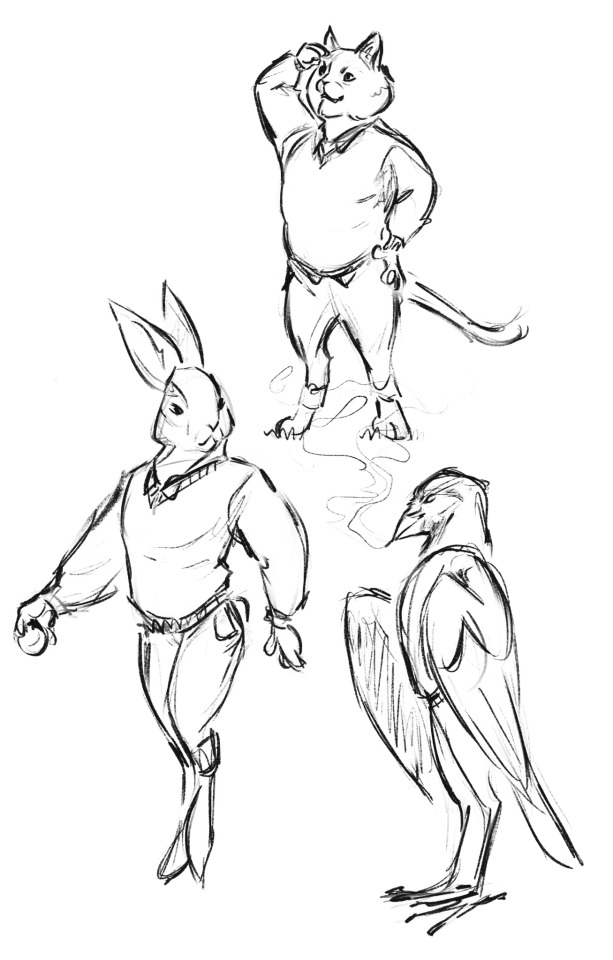


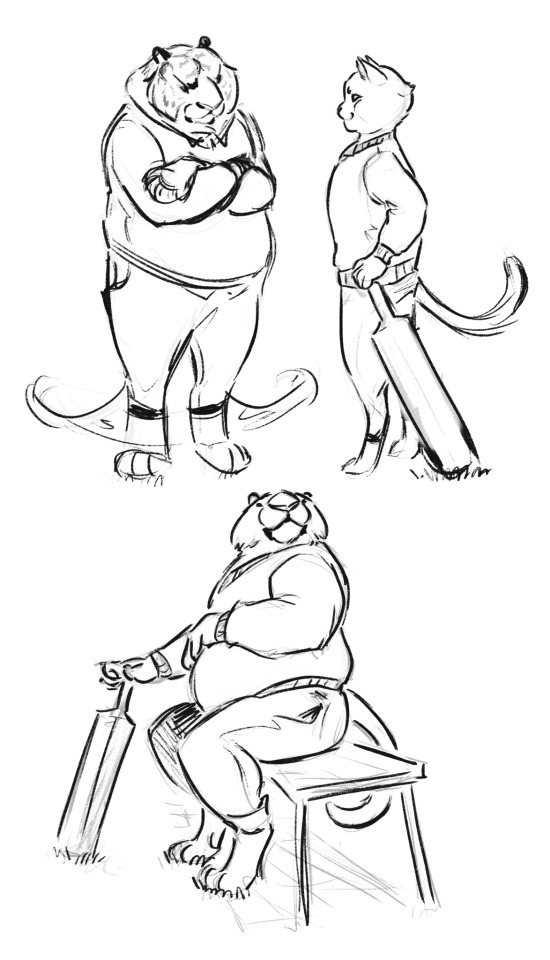
Downton doodles 10! Cricket, Lord Merty, and more
#focusing more on human body shapes this time#I’m in a figure drawing mood#sketches#rough#doodles#my art#downton animal au#Downton abbey#animal au#anthro#furry#safe fur work#digital#art#illustration#Charles carson#lord merton#robert crawley#mary crawley#anna bates#isobel crawley#Thomas barrow#matthew crawley#Tom Branson#cat#tiger#otter#rabbit#deer#Anna x mary
45 notes
·
View notes
Text

When I began to think about the work you commanded
I guarded my spirit, did not expend it
On trifles, that were not to the point.
I fasted in order to set
My heart at rest.
After three days fasting,
I had forgotten gain and success.
After five days
I had forgotten praise or criticism.
After seven days
I had forgotten my body
With all its limbs.
—Thomas Merton, The Wood Carver, in The Way of Chuang Tzu (莊子), (1965)
[Thanks Robert Scott Horton]
15 notes
·
View notes
Text




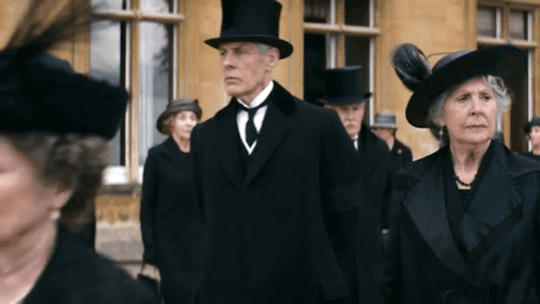
The Crawley Family
Downton Abbey: A New Era (2022)
#robert crawley#cora crawley#rosamund painswick#mary crawley#edith crawley#bertie pelham#tom branson#lucy smith#maud bagshaw#lord merton#isobel crawley#downtonabbeyedit#downtonedit#perioddramagif#perioddramasource#perioddramacentral#perioddramaedit#periodedit#gifshistorical#weloveperioddrama#onlyperioddramas#tvfilmsource#cinemapix#downton abbey: a new era#downton abbey#my post#*edits
96 notes
·
View notes
Note
For in box love ask, have any unpopular opinions about Downton Abbey?
I'm sure I have a few unpopular opinions. Not quite sure tho what is considered as unpopular.
I like Mr Bates a lot. In fact, when I watched the show for the first time I was very much focused on Anna and Mr Bates. But Julian Fellowes did them so ugly with their harsh storylines, that I don't enjoy watching them as much anymore and feel more distanced to these characters now. But I still like them and their pure relationship very much.
I'm an Edith apologist. I know she did some nasty things in the beginning but her character development is just my favourite. She turned out to be my favourite Crawley sister, even though I adored Sybil from the beginning.
On the other side, I always feel conflicted about Mary. She is a great character for the show, absolutely. But I can't really relate to her and feel very distanced to her. But the duality of her character is definitely great characterisation.
Oh, and I think this is pretty unpopular but I actually shipped Isobel and Dr Clarkson. Only in my last rewatches I got around to really like the relationship of Isobel and Dickie. Now I think they're pretty good together but I would've preferred to see more of Isobel and Dr Clarkson.
I don't want a prequel of Downton Abbey, especially not for Cobert because the characters are strictly connected with their actors for me. I couldn't see anyone else as Cora but Liz McGovern and no one else as Robert but Hugh Bonneville. And in addition, I'm not sure if I want one official precanon story for Cobert. I want to believe that all the great fanfics that exist could be true.
I'm sure there are more but I can't think of anything else at the moment :)
#inbox love#thank you for the ask!#unpopular opinions about downton abbey#downton abbey#mr bates#edith crawley#mary crawley#isobel crawley#richard clarkson#dickie merton#cobert#robert crawley#cora crawley
31 notes
·
View notes
Text

"حتى فقد السيطرة عليه"
4 notes
·
View notes
Text
Downton Abbey: A New Era's "To Show That Time Has Passed" Side Plot Will Never Stop Being Funny to Me
In the series finale of Downton there's a whole to-do about Lord Merton's presumed pernicious anemia since it's "untreatable" (the scientific reality of this is questionable at best, but I digress) with the end reveal that he's only anemic.
In Downton Abbey: A New Era they rehash this exact plot with Cora's presumed cancer that turns out to be pernicious anemia, which is now treatable.
I can only assume the conversation in the writer's room went something like this:

I love you Downton, but there are other ways to communicate time period/the passage of time without putting people in pernicious anemia-based peril.
#downton abbey#downton abbey: a new era#da2 spoilers#cora crawley#robert crawley#lord merton#isobel crawley#obligatory fuck john mulaney for transphobic bullshit tag
17 notes
·
View notes
Text
This was a great ending to a great franchise.
#downton abbey: a new era#robert crawley#cora crawley#mary crawley#edith crawley#tom branson#lucy smith#bertie pelham#violet crawley#isobel crawley#dickie merton#maud bagshaw#sybbie branson#george crawley#marigold crawley#charles carson#elsie hughes#john bates#anna bates#johnny bates#daisy mason#andy parker#beryl patmore#jack barber#guy dexter#myrna dalgleish#anti thomas barrow
0 notes
Text
Activity 1
Members: Nanssy Moga, Syeda Alishba Arshad

The multimedia materials from modules 2-4 intertwine, providing profound insights into contemporary social dynamics. Barbara Walters delves deeply into Talcott Parsons and Robert Merton's structural functionalism, a fundamental theory that explains our understanding of social systems. This viewpoint emphasizes the critical role of social order and balance for maintaining societal stability. Parsons emphasizes the role of social institutions in ensuring stability, while Merton expands on this framework by delving into the tensions that arise when societal goals and means diverge, highlighting the intricate dynamics involved in achieving societal cohesion. Merton's evaluation is consistent with Theodor Adorno's critique of the culture industry, which calls into question structural functionalism's claim to societal harmony. Adorno demonstrates how capitalist forces manipulate culture, resulting in the breakdown of genuine human relationships. This critique is consistent with Merton's research into societal strains, as both scholars acknowledge the tension between societal norms and individual aspirations during modernization. Adorno's critical perspective adds to the discussion by prompting us to think about the societal consequences of capitalist influence on culture and social relationships. Moreover, Professor Alexander Dreiling's discussion of social capital theory deepens the analysis by delving into the micro dynamics of social networks.While Parsons and Merton focus on macro-level structures, Dreiling investigates how individual connections and relationships affect the accumulation and distribution of social capital. Adorno's critique intersects with social capital theory, providing insight into how capitalist forces influence social relationships and resource access. These intersections demonstrate the critical combination of perspectives required to fully comprehend contemporary social phenomena. They show how various theories converge on the central theme of capital, whether social (as defined in social capital theory) or economic (as explained in modernization and consumer culture). Structural functionalism provides a framework for understanding societal stability, while Adorno's critique of consumer culture challenges notions of harmony, and social capital theory delves into the dynamics of resource access within social networks. Together, they offer complementary insights into the role of capital, both social and economic, in shaping contemporary social dynamics.
In contemporary society, theories like Talcott Parsons' structural functionalism, Robert Merton's social capital theory, and Theodor Adorno's critiques of consumer culture remain highly pertinent, particularly within the context of capitalism.These theories provide important insights into how our own capital, whether economic or social, powerfully influences our social world. Structural functionalism clarifies the critical role of social structures and norms in ensuring societal stability under capitalist systems. It emphasizes how capitalism shapes the formation and functioning of society, with economic goals frequently determining social structures and behaviours. Similarly, social capital theory offers a framework for understanding how people accumulate and use resources in capitalist systems. It emphasizes the significance of developing relationships that provide advantages, whether economic or social, echoing the dynamics of social exchange theory in capitalist economies. Furthermore, Adorno's critique of consumer culture reveals how capitalism manipulates impulses and relationships, cultivating a culture of consumption that diverts people from meaningful goals and maintains societal injustices. The combination of these perspectives provides a thorough understanding of current social dynamics in capitalist societies. Whether investigating macro-level patterns through structural functionalism or digging into the micro-dynamics of social networks with social capital theory, these theories converge on the primary subject of capitalism's ubiquitous effect. To summarize, understanding how capitalism impacts our social interactions and institutions is critical for navigating the intricacies of modern society.
youtube
youtube
youtube
#sociology#Theodor Adorno#Alexander Dreiling'#Talcott Parsons#Robert Merton's#Barbara Walters#Youtube
1 note
·
View note
Text
the self-fulfilling prophecy and the power of the spoken word

hellour again! i’m free these days, so i’d thought i’d make another long post; this time about the self-fulfilling prophecy and how Florence Scovel Shinn writes about a similar concept in her book The Game of Life and How to Play it. specifically, in the third chapter.
i really like Scovel Shinn’s works, especially because she was one of the pioneers of the New Thought school at the time, even before Neville. it’s clear that she was a very wise metaphysical author, and more people should give her some credit!
i love my major, and i love manifestation. so any chance i have to correlate both is one i will take!

remember the academic book i got this information from is Social Psychology 11th Edition authored by Kassin, Fein and, H.R. Markus. i’ll try to condense the information to make it less convoluted and understandable.

what is the self-fulfilling prophecy?
according to sociologist Robert Merton, the self-fulfilling prophecy is a process by which one’s expectation about someone will eventually lead to that person behaving in ways that confirm those expectations. in other words, the perceiver's (person who takes note of another) expectation can actually lead to its own fulfillment, a self fulfilling prophecy.
this hypothesis actually lay dormant until Robert Rosenthal and Lenore Jacobson, published the results of their research in a book titled Pygmalion in the Classroom.
what did this study consist of? well, these researchers noticed that teachers had higher expectations for students who performed better in the classroom and they wondered whether these expectations influenced student performance rather than the other way around.
to address the question, they told teachers in a San Francisco elementary school that certain pupils were on the verge of an intellectual growth spurt. the results of an IQ test were cited, but in fact, the pupils had been randomly selected. eight months later, when real tests were administered, the "late bloomers" exhibited an increase in their IQ scores compared with children assigned to a control group. they were also evaluated more favorably by their classroom teachers (Kassin 144).
why should we be careful about what we say?
we can transform our expectations of others into reality using a three-step process:
- first, a perceiver forms an impression of a target person, which may be based on interactions with the target or on other information.
- second, the perceiver behaves in a manner that is consistent with that first impression.
- third, the target person unwittingly adjusts his or her behavior to the perceiver's actions. The net result is behavioral confirmation of the first impression.
in simpler terms, what we think is what we project onto others. that process is called the confirmation bias. this is nothing more than the perceiver asking the target person questions that confirm their beliefs. for example, if we assume that a person is in a varsity team because of the jacket they’re wearing, we will ask them things that either confirm or deny that assumption. small things like these that we do unconsciously:
“are you on the basketball team?”
“do you go to blank university?”
we can also apply this to ourselves:
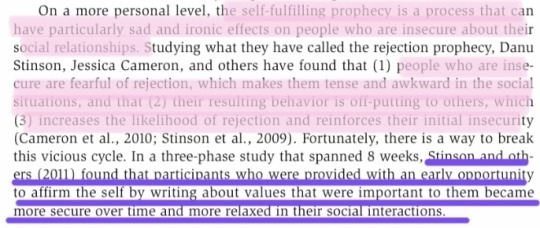
(shown on a pic because i don’t wanna copy paste the info :D)
using psychology to tie into the law and my previous long post about the self-concept, we can see why words and the way we perceive ourselves is important when we reprogram our minds into thinking in a more positive light.

Florence Scovel Shinn, The Game of Life and How to Play It

chapter III, The Power of the Word
“By thy words shalt be justified, and by thy words shalt be condemned.”

what does Scovel Shinn say about the spoken word?
in her first book The Game of Life and How to Play It, she mentions a saying that reads: “man only dares use his words for three purposes: to heal, bless or prosper.” she also mentions that what man says of others will be said of him, and what he wishes for another, he is wishing for himself (Scovel 24).
“Curses, like chickens, come home to roost.”
what does this mean? well, like we saw in the bit about the self-fulfilling prophecy, what we say about others is what we attract for ourselves. for example, if we wish ill on—say—another tumblr user, we are sure to receive it as well. on the other hand, if we are kind to one another and support our journeys with manifestation, we will be able to reach our own success.
edward art mentions this too. but he calls it something more simple. love.
Scovel Shinn mentions in this chapter that when the subconscious is flooded with good things, or words in this case, the superconscious (God or imagination) and man are one.
“It is safe to say that all sickness and happiness come from the violation of the Law of Love.”
in this story she mentions an actress with a terrible skin disease:
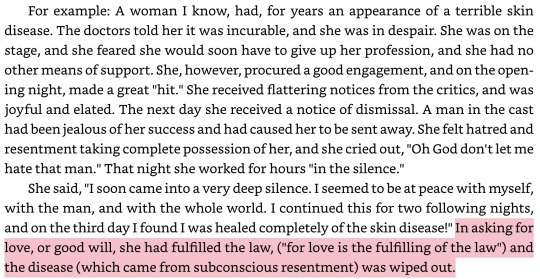
as we can see in this story, any problems in the outside world indicate a deeper issue in the mind.
“As the within, so the without.”
why do i say that Florence Scovel Shinn’s beliefs coincide with the self-fulfilling prophecy?
we know that the self fulfilling prophecy implies that the way we perceive others is the way they will reflect on the outside. this is what the good-will Scovel Shinn mentions is about.
"But I say unto you, love your enemies, bless them that curse you, do good to them that hate you, and pray for them which spitefully use you and persecute you."

conclusion
sometimes we get jealous of others' journeys. we read a success story and wonder “what am i doing wrong? maybe if i do what this person did i will manifest all my desires.” but remember we’re all different. what works for another might not work for us, and that’s okay :)
the beauty about spirituality is that we all have our own paths to follow, each with their unique experiences. trying out techniques you don’t like because you saw them in a “this is the fastest way to manifest” video will not fulfill you. and what doesn’t fulfill you will only make you give up.
i’ve seen this thrown around loablr and shiftblr, but i’ll reiterate in this post. please don’t police others on their journey. the only thing that will do is set you back.
next time you see a success story around the community, be happy for them! if anything, it’s a great thing to see on your dash because it's proof that the law always works in your favor. every time. so let’s wish each other well, practice gratitude, and focus on ourselves!
"There is peace on earth for him who sends goodwill to man!"

ps im plugging the song i listened to while writing this post because sharing is caring. take care!
#shiftblr#loassumption#loa tumblr#loablr#florence scovel shinn#reality shifting#shifting#quantum jumping#manifesting#law of assumption#edward art#manifesation#loa blog#loa#shifting realities#reality shift#shifting motivation#shifting community#shifting blog#shifters#loa motivation#informative#social psychology#psychology#Spotify
58 notes
·
View notes
Text
britcom comedians & panel show personalities who share your sign
AQUARIUS ♒ dara ó briain • frank skinner • glenn moore • guz khan • hugh dennis • lucy porter • maisie adam • mark watson • phil wang • vic reeves
PISCES ♓ aisling bea • alan davies • dave gorman • ed gamble • jenny eclair • katy wix • michael mcintyre • rose matafeo
ARIES ♈ andy parsons • desiree burch • ed byrne • gary delaney • jamali maddix • john kearns • josh widdicombe • josie long • roisin conaty • romesh ranganathan • rory bremner
TAURUS ♉ al murray • alex brooker • catherine tate • greg davies • joe wilkinson • john robins • mae martin • milton jones • morgana robinson • rhys james • rob brydon • sally phillips • sandi toksvig • sean lock • stephen mangan
GEMINI ♊ alan carr • bob mortimer • david baddiel • fern brady • judi love • julian clary • london hughes • mel giedroyc • noel fielding • paul sinha • rich hall • richard ayoade • sara pascoe • sarah millican • shappi khorsandi • sindhu vee • tom allen
CANCER ♋ adam hills • alice levine • david mitchell • katherine ryan • harriet kemsley • ian hislop • jack whitehall • joe lycett • paul merton • peter serafinowicz • phill jupitus • rosie jones
LEO ♌ bridget christie • cariad lloyd • chris ramsey • daisy may cooper • frankie boyle • isy suttie • lee mack • jo brand • nish kumar • victoria coren mitchell
VIRGO ♍ alex horne • dane baptiste • darren harriott • ivo graham • jimmy carr • johnny vegas • lolly adefope • miles jupp • nina conti • stephen fry • sue perkins • tim key
LIBRA ♎ diane morgan • harry hill • jack dee • jon richardson • limmy • nick helm • rhod gilbert • robert webb • tiff stevenson • zoe lyons
SCORPIO ♏ angela barnes • chris addison • elis james • ellie taylor • holly walsh • liza tarbuck • jonathan ross • kerry godliman • kevin bridges • matt forde • mike wozniak • sofie hagen • susan calman
SAGITTARIUS ♐ adam riches • david o'doherty • jessica knappett • larry dean • miranda hart • richard osman • seann walsh • simon amstell • steven k. amos
CAPRICORN ♑ ahir shah • angus deayton • bill bailey • claudia winkleman • james acaster • mark lamarr • paul foot • rob beckett • suzi ruffell
#REPOSTING CUZ I ACCIDENTALLY DELETED IT HAHA#sorry i can't include every person ever but i tried to at least do everyone's faves!#a good day to be a gemini!!!#signs
123 notes
·
View notes
Text
jurisprudence & criminology intro reading list.
this list is not an exhaustive guide to any of these fields. my main goal here is to propose some key concepts so that you can start exploring theory on your own. it should also go without saying that it is not composed merely of scholarship that i consider good or even truthful; getting familiar with historical themes is very much beneficial for the broader context. additionally, while jurisprudence and criminology are closely related fields, and having some general idea about jurisprudence makes studying criminology easier, it's not a requirement, so feel free to skip sections as you please. lastly: this is a mix of more theory-heavy and also relatively light reading; if something is difficult to understand, google and youtube are your best friends, and there's a good chance other texts will appear more accessible.
jurisprudence
one of the main questions of jurisprudence is: what is is the proper relationship between law and morality? the following texts focus mostly on that question.
main schools to explore:
legal naturalism
notable names: ian fuller, john finis. (naturalist-leaning): patrick devlin.
proposed readings: 1. devlin, p. (1959) morals and the criminal law, 2. fuller, l. (1964), the morality of law 3. finnis, j. (1980) natural law and natural rights.
legal positivism
notable names: jeremy bentham, john austin, h. l. h. hart, joseph raz.
proposed readings: 1, stanford encyclopedia of philosophy: the legal positivism entry, 2. hart, h. (1961) the concept of law, 3. hart, h. (1963) the legal enforcement of morality, 4. raz, j. (1979) the authority of law.
legal interpretivism
notables names: ronald dworkin
proposed reading: 1. stanford enclycopedia of philosophy: the intepretivism entry, 2. dworkin, r. (1978) taking rights seriously.
critical theory (generally legal positivist in the simplest terms, but not necessarily comfortable with that label) & sociology.
notable names: max weber, emile durkheim, carol smart (feminism), achille mbembe (postcolony)
proposed reading: 1. smart, c. (1989) feminism and the power of law. 2. hardar, p. (2008) law, orientalism and postcolonialism: the jurisdiction of the lotus-eaters.
criminology
main topics to explore:
biological theories (look: phrenology, degeneration theory, atavistic theory of crime.)
notable names: cesare lombroso, b.a. morel.
this is mostly historical content; most textbooks on criminology will have a section on it. google is also your best friend. original source texts are mostly pseudo-scientific so i recommend looking into them only if you're specifically curious.
functionalism & structuralism
notable names: emile durhkeim, robert merton
proposed readings: 1. durkheim, e. (1972) crime as normal behaviour, 2. merton, r. (1938) social structure and anomie
marxist criminology
notable names: willem bonger, thorster sellin
proposed readings: 1. bonger, w. (1916) criminality and economic conditions, 2. sellin, t. (1938) culture conflict and crime
control theory
notable names: jackson toby, travis hirschi.
proposed readings: 1. pratt, t. (2011). "key idea: hirschi’s social bond/social control theory." in: key Ideas in criminology and criminal justice.
labelling theory
notable names: howard becker
proposed readings: 1. goode, e. (2018) labeling theory.
penal theory
in terms of penal theory, you can find plenty reliable sources and reading lists online. here are some of my personal theory-heavy picks.
key readings:
the iep entry on punishment,
the stanford encyclopedia of philosophy entry on legal punishment,
carlen, p. (2013) against rehabilitation: for reparative justice.
davis, a. (2003) are prisons obsolete?
foucault, m. (1975) discipline and punish: the birth of the prison.
johnstone, g., (2002), restorative justice: ideas, values, debates,
johnstone, g. (ed.), (2007), handbook of restorative justice.
#this took me a while. sorry#feel free to request pdfs from me but it might take a while bc my life has been soo hectic. and i don't have all of them saved#<- but i do have institutional access to most of them so it won't be an issue#maybe i'll make a google drive later or something.#also just fyi. i'm not a specialist in either of these fields.
33 notes
·
View notes
Text

They’re going to see Minions: Rise of Gru
57 notes
·
View notes
Text

The people who listen to [fire and brimstone preaching], and absorb it, and enjoy it, develop a notion of the spiritual life which is a kind of hypnosis of evil. The concepts of sin, suffering, damnation, punishment, the justice of God, retribution, the end of the world and so on, are things over which they smack their lips with unspeakable pleasure. Perhaps this is because they derive a deep, subconscious comfort from the thought that many other people will fall into the hell which they themselves are going to escape. And how do they know they are going to escape it? They cannot give any definite reason except for the fact that they feel a certain sense of relief at the thought that all this punishment is prepared for practically everyone but themselves.
This feeling of complacency is what they refer to as “faith,” and it constitutes a kind of conviction that they are “saved.” The devil makes many disciples by preaching against sin. He convinces them of the great evil of sin, induces a crisis of guilt by which “God is satisfied.” And after that he lets them spend the rest of their lives meditating on the intense sinfulness and evident reprobation of other men.
― Thomas Merton, “The Moral Theology of the Devil,” in New Seeds of Contemplation p 90 (1949
[Robert Scott Horton]
17 notes
·
View notes
Note
I didn't even recall it but we also had Lord Merton with a wrong diagnosis so that's three examples of his own work froom which Julian Fellow's can draw. I guess people were right when they said it couldn't just be resolved by the 3rd episode without it going poorly. Another theory I have seen floating around is that Oscar is basically getting scammed by Maud and the Van Rhijns will be ruined but Luke is a secret millionaire and by inheriting said secret fortune the tables turn and it's Ada who takes Agnes in (as she often likes to remind her sister). Give Luke pernicious anemia and let he and Ada be!
I'm very curious how this is all going to go too. Being a "Downton Abbey" fan I kept thinking of ways this could go as it really could be anything. LOL And we haven't really gotten that many spoilers. I hadn't seen that theory about Luke possibly getting an inheritance and helping out Ada and her family. I love him and Ada together and seeing a couple that got together later in life and just hoping they can find happiness. Plus I love Robert Sean Leonard too and I've seen too many of his characters die so would be nice if that doesn't happen here.
11 notes
·
View notes
Text
Masterlist Song Recs
If you're like me and constantly on the search for inspirational songs for your writing sessions, here are my favourite pieces of music for my favourite Hogwarts Legacy boys ♥
Please note: A lot of songs fit for more than one!
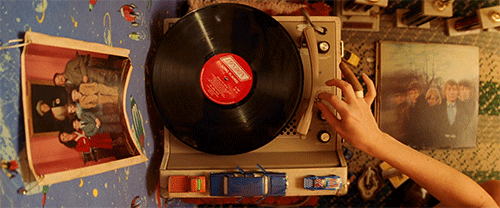
Sebastian Sallow
Glamour Child by Moonrise Nation
Did You Come? by girl in red
Easier than Lying by Halsey
Fingers Crossed by Lauren Spencer Smith
Falling Down by Lil Peep, XXXTENTACION
Hey Lover by The Daughters of Eve
Soldier, Poet, King by The Oh Hellos
I Always Knew by The Vaccines
Sunday by the River by orbit
The Good Side by Troye Sivan
The Way it Ends by Landon Pigg
multiverse by Maya Manuela, PEMBROKE
505 by Arctic Monkeys
Arms Tonight by Mother Mother
Uprising by Muse
Blank You Out by Seafret
How Did You Get So Good by D'Lourdes
Little Black Death by MEG MYERS
so sad so sexy by Lykke Li
Rivers and Roads by The Head And The Heart
Hatefuck by Cruel Youth
Magnets by Disclosure, Lorde
Memories by Conan Grey
People You Know by Selena Gomez
Say You Love Me by Jessie Ware
Denial by White Lies
If The World Was Ending by JP Saxe, Julia Michaels
Sweater Weather by The Neighbourhood
NEW:
Cute Without The 'E' by Taking Back Sunday
POS by Sueco
Come Back Home by 070 Shake
Out of My League by Fitz and The Tantrums
Do I Wanna Know? by Arctic Monkeys
I don't want to watch the world end with somebody else by Clinton Kane
Falling for the Villain by PEGGY
Deep End by Fousheé
Pretty Boy by Young Galaxy
Ominis Gaunt
Grow Old with Me by Tom Odell
Till Forever Falls Apart by Ashe, FINNEAS
Black Dress by Oskar Haag
Waste My Life by Alice Merton
Medicine by Daughter
Nightcall by Kavinsky
bad idea! by girl in red
Say You Love Me by Jessie Ware
The Night We Met by Lord Huron
Take on the World by You Me At Six
Eventually by Tame Impala
Let It Happen by Tame Impala
One More Hour by Tame Impala
Magnets by Disclosure, Lorde
As the World Caves In by Sarah Cothran
Possibility by Lykke Li
Atlantis by Seafret
What A Time by Julia Michaels & Niall Horan
I Will Follow You into the Dark by Death Cab for Cutie
The Beach by The Neighbourhood
Never Enough by Loren Allred
ceilings by Lizzy McAlpine
Hey Lover by The Daughters of Eve
It's All So Incredibly Loud by Glass Animals
Soldier, Poet, King by The Oh Hellos
NEW:
Rue by girl in red
Never Felt So Alone by Labrinth
Yes to Heaven by Noxys
Torn by Natalie Imbruglia
All I Wanted by Daughter
I Run To You by MISSIO
Shelter by The xx
Sunday by the River by orbit
roslyn by creamy, Blueberii
The Good Side by Troye Sivan
The Way It Ends by Landon Pigg
Slow by shy martin
I don't want to watch the world end with somebody else by Clinton Kane
Pretty Boy by Young Galaxy
Garreth Weasley
First Day Of My Life by Bright Eyes
Don't Delete The Kisses by Wolf Alice
She's so Untouchable by Garden City Movement
Hey Lover by The Daughters of Eve
My Love by Florence + The Machine
Posin by Glenn Gatsby
Lone Digger by Caravan Palace
Your Ex Said You Can't Dance by The Real Zebos
How Did You Get So Good by D'Lourdes
Two Weeks by Grizzly Bear
I Will Follow You into the Dark by Death Cab for Cutie
Everybody Talks by Neon Trees
What If I Love You by Gatlin
Not Going Home by DVBBS, CMC$, Gia Koka
Johnny and Mary by Robert Palmer
Sally by Thundamentals, Mataya
Seasons (Waiting On You) by Future Islands
There Goes Our Love Again by White Lies
Soldier, Poet, King by The Oh Hellos
Like a Friend by Pulp
Take It Out on Me by White Lies
History of Broken Hearts by Malky
NEW:
Two Weeks by Grizzly Bear
Falling Slowly by Glen Hansard & Markéta Irglová
Out of My League by Fitz and The Tantrums
Hot Tea by half-alive
Pretty Boy by Young Galaxy
tbc.
#hogwarts legacy#harry potter fandom#ominis gaunt#hogwarts#sebastian sallow#garreth weasley#song recommendation#writing inspo#playlist#ominis#garreth#ominis x mc#sebastian x mc#garreth x mc#ominis gaunt x mc#sebastian sallow x mc#garreth weasley x mc#fanfiction inspiration
40 notes
·
View notes